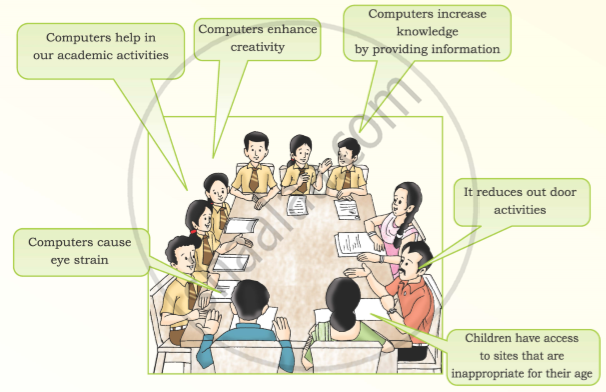Advertisements
Advertisements
प्रश्न
"They say it was a shocking sight
After the field was won;
For many thousand bodies here
Lay rotting in the sun;
But things like that, you know, must be
After a famous victory.
"Great praise the Duke of Marlbro'won,
And our good Prince Eugene."
"Why,'twas a very wicked thing!"
Said little Wilhelmine.
"Nay...nay...my little girl,"quoth he,
"It was a famous victory.
"And everybody praised the Duke
Who this great fight did win."
"But what good came of it at last?"
Quoth little Peterkin.
"Why that I cannot tell,"said he,
"But 'twas a famous victory."
Read the lines given above and answer the question that follow.
In “The Battle of Blenheim,” why are Wilhelmine’s words “twas a very wicked thing” ironic?
उत्तर
Wilhelmine’s words “twas a very wicked thing” are ironic because although she innocently is telling the truth, but her grandfather says she is wrong. She, a child will never understand issues of war and death but the poet makes her his mouthpiece to comment on war.
APPEARS IN
संबंधित प्रश्न
Thinking about the Text
Answer these question.
Why does the intruder choose Gerrard as the man whose identity he wants to take on?
This is a meeting of the school's Parent-Teacher Association. Some student representatives have also been invited to participate to discuss the role that Information Technology I Computers play in the growth and development of children.

Some are Purple and gold flecked grey
For she who has journeyed through life midway,
Whose hands have cherished , whose love has blest,
And cradled fair sons on her faithful breast,
And serves her household in fruitful pride,
And worship the gods at her husband's side.
Read the lines given above and answer the question that follow:
What do the purple and grey colours of bangles signify in this stanza?
The boy looked up. He took his hands from his face and looked up at his teacher. The light from Mr. Oliver’s torch fell on the boy’s face, if you could call it a face. He had no eyes, ears, nose or mouth. It was just a round smooth head with a school cap on top of it.
And that’s where the story should end, as indeed it has for several people who have had similar experiences and dropped dead of inexplicable heart attacks. But for Mr. Oliver, it did not end there. The torch fell from his trembling hand. He turned and scrambled down the path, running blindly through the trees and calling for help. He was still running towards the school buildings when he saw a lantern swinging in the middle of the path. Mr. Oliver had never before been so pleased to see the night watchman. He stumbled up to the watchman, gasping for breath and speaking incoherently.
What is it, Sahib? Asked the watchman, has there been an accident? Why are you running?
I saw something, something horrible, a boy weeping in the forest and he had no face.
No face, Sahib?
No eyes, no nose, mouth, nothing.
Do you mean it was like this, Sahib? asked the watchman, and raised the lamp to his own face. The watchman had no eyes, no ears, no features at all, not even an eyebrow. The wind blew the lamp out and Mr. Oliver had his heart attack.
Read the extract given below and answer the question that follow.
Why did Mr Oliver tell the boy that he should not be out at that hour?
We should not mess up with things that belong to others. Elaborate.
During the 1760 and 1770s, it became common to pitch the ball through the air. What changes it brought in to the game of cricket?
Why did Abbu Khan laugh with joy?
If you had to make some rules for grown-ups to follow, what would you say? Make at least five such rules. Arrange the lines as in a poem.
To whom are these instructions being addressed?
Multiple Choice Question:
Which one of the following mistakes the child does not make?
